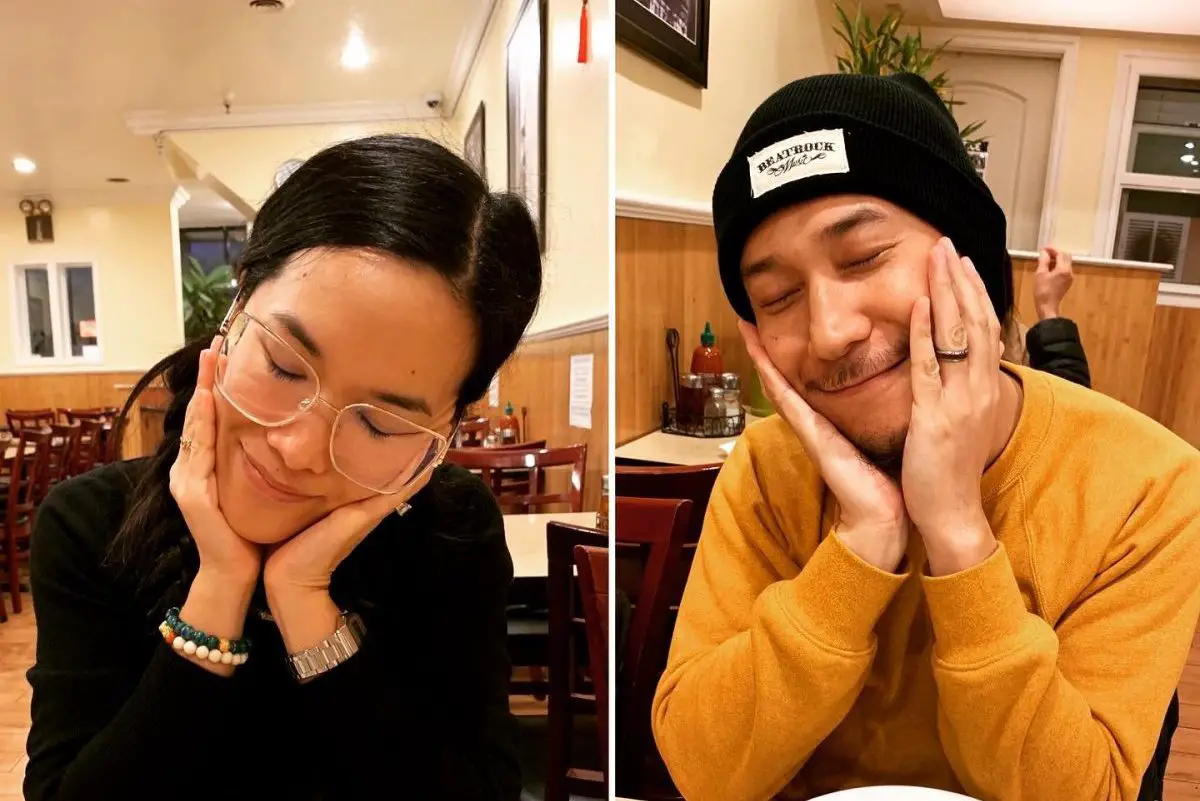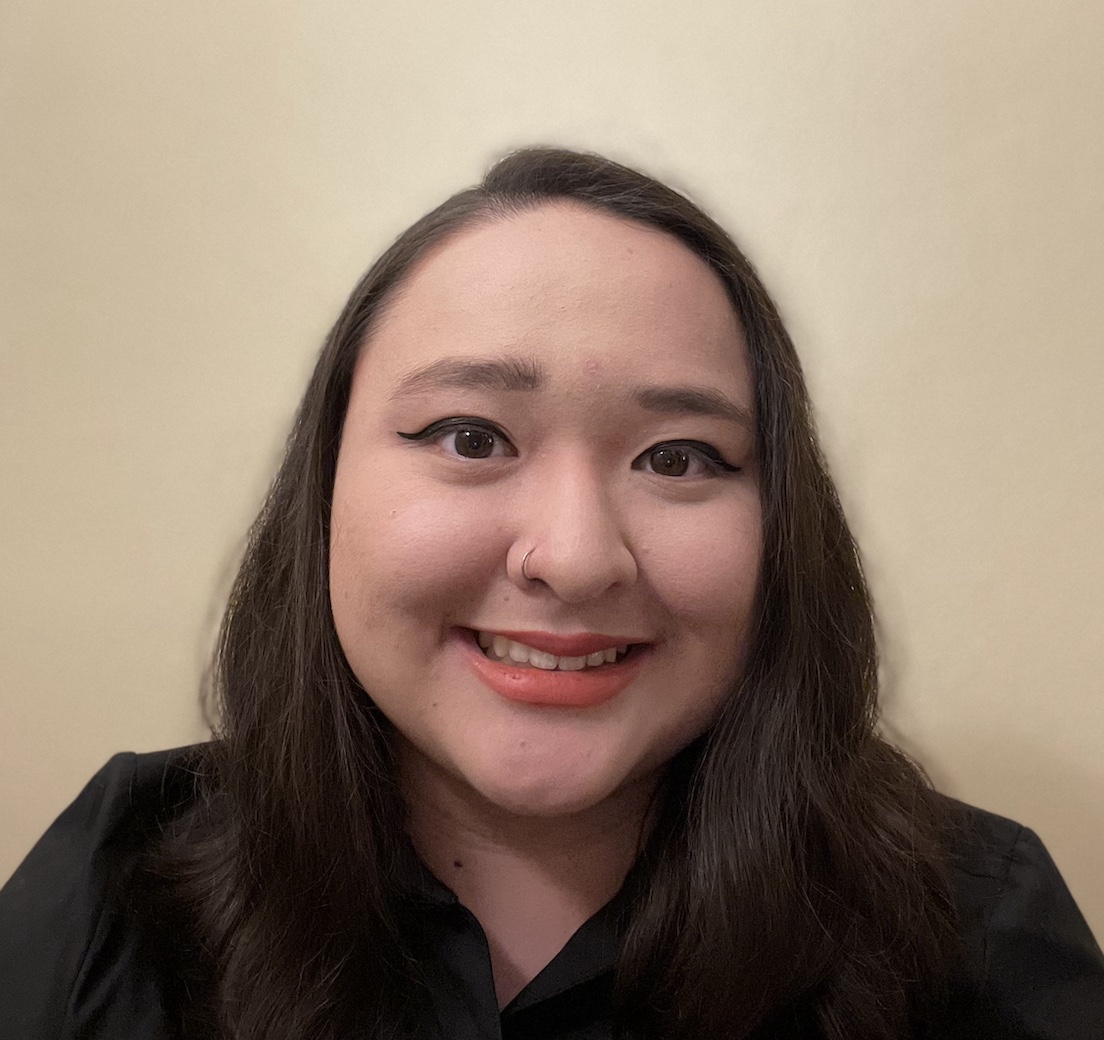“Hey, has anyone ever told you that you look like this one celebrity?” It’s a common question thrown around between friends in hangouts and addressed to strangers on the streets. On the surface, nothing hurtful comes from comparing your friends to “that one guy who was in that one film that one time.” Despite these carefree comparisons, these assumptions over peoples’ identities can yield brutal repercussions if they are oblivious of whoever is involved. When mistaking someone for a different person happens time and time again, the “mistake” can fester into a painful problem that can ripple out into a wider, socialized conversation. Recent mix-ups regarding Ali Wong’s impending divorce to Justin Hakuta set the stage for this greater debate of identity mishaps in the media age.
The initial conflict began when it was announced that comedian Ali Wong is divorcing her husband Justin Hakuta. As People Magazine reported on the “amicable” separation, the couple will split after eight years of marriage. For those who are unfamiliar with Wong, the comedian is well-loved for her stand-up specials such as “Baby Cobra” and “Hard Knock Wife,” and her starring role in the 2019 film “Always Be My Maybe.” While many devout fans associate Wong with her leopard print stage outfit, the comedian is adored for her witty truths that spark cry-laughing reactions from the audience.
Clips of Wong poking fun at her life with Hakuta are popular hits with her internet crowd, constantly sharing how she was successful at “trapping” him into their marriage. With him adopting the roles of “husband” and “punchline” in the most affectionate way possible, it’s easy to gloss over his accomplished career as well. Hakuta’s entrepreneurial background is just as impressive as Wong’s cult-like comedy following. His resume alone is jaw-dropping to boot: as a graduate from Harvard Business School and former vice president of product at GoodRx, Hakuta’s success is his own, save for the leg-up from his famous father, Ken Hakuta.
To the surprise of Wong’s fans, the announcement of her divorce shed light on what might have been rocky hardships beneath her rose-colored comedy. Even if “making fun” of herself and her life is what Wong does best, the reality of balancing an up-and-coming career against family life can breed complications. At the end of the day, the comedian is simply human, choosing to share her life and her decisions with the audience that gave her the prolific platform. Though the news is an unfortunate split, the former couple’s pleasantries are seemingly for the benefit of their two young daughters, and the media outlets who rush to share the news as quickly as possible.
The seemingly tame announcement boiled over when it spread far and fast across the internet. With big names such as People Magazine and NBC News outlets objectively sharing news of Ali Wong and her soon-to-be ex-husband, some news reporters failed to do their research before clicking the “publish” button. Most notable was Parade Magazine’s now-deleted tweet, which was angrily quoted by author Phil Yu with the caption, “Come on! Can we not ruin the news of Ali Wong’s divorce with Wrong Asian racism?” The fiery caption by Yu was not off in the slightest; Parade’s original tweet used a photo of Wong with actor Randall Park, co-star in her movie, “Always Be My Maybe,” as the thumbnail of the article. Hakuta was nowhere in sight for an article that was supposed to be about his divorce.
Unfortunately, MSN followed suit: Using just a picture of Park in their post on Wong and Hakuta’s separation, the now-deleted tweet never featured the couple discussed. Twitter user Yu was, again, calling out the rudeness of MSN’s careless mix-up with the tweet, “And then you’ve got MSN over here with a photo that is neither Ali Wong nor Justin Hakuta #wrongasian.” While it was a terrible “mix-up” by both publications for a sensitive announcement, each mistake sparked a greater conversation on the representation of Asian and Asian American faces. No longer was talk around the soon-to-be-unmarried couple; instead, the news of divorce shed a brighter light on the issue of stereotyping Asian identities in the mainstream media.
While a mistake like wrongly identifying someone can be brushed aside as a “human error” the first or second time around, one can’t dismiss a recurring problem. In the case of Wong and her widely known platform as an Asian American comedian, butchering the imagery of her divorce resonated with the notion that “all Asians look the same.” The stereotype itself manifests in various forms, but it is essentially the idea that all people of Asian descent — be they East Asian, Southeast Asian or South Asian ancestry — will all “look alike” as one ethnicity. For simplicity’s sake, this mindset is so prominent in television and film that it has earned a rank among media tropes.
Piggybacking on the “model minority” myth of Asians and Asian Americans, the idea that “all Asians look the same” is profoundly damaging to the population in question. For one thing, the assumption that people of a certain ethnic background all look alike physically completely disregards any further interest in one’s character, culture or personality. These types of harmful presumptions brutally shut down the process of learning more about a person before it can even begin; when one upholds the trope of Asian and Asian American “sameness,” they project their limited prior knowledge of the racial background onto a person.
The “all Asians look the same” trope manifests itself clearly in the case of Wong and Hakuta’s split. As seen in Yu’s first set of tweets on the issue — which garnered over 20,000 likes each — the media mix-up did more harm than just using the “wrong photo.” The same damaging assumption of “interchangeable Asian cultures” was applied to this already disheartening news. Instead of taking the time to research the subjects of their articles, Parade Magazine and MSN simply threw out a photo of any Asian man remotely connected to Wong.
NPR noted the simplicity of preventing this incident before it started: They were baffled by the fact that the media outlets confused Park for Hakuta “despite the abundance of very Google-able information out there about him.” With a preventable mistake, the reality of the mix-up simmers down to pure carelessness for subjects Wong, Hakuta and even Park, someone who wasn’t remotely connected to the divorce until this error.
For the social media audience watching this unfold, some users turned to humorous responses to lighten the harmful stereotypes reinforced by these major publications. Comments such as “Ali Wong simultaneously divorces all Asian men in Hollywood” subtly target how the “all Asians look the same” trope relates to silver-screen casting. Others make fun of the allegedly “interchangeable” Asian identity, where one can just “dress up” as an Asian or Asian American at their convenience: “In their defense, Justin Hakuta and Randall Park were both Asian on the same night this one time,” stated one Twitter comment, complete with photos of Hakuta and Park attending the same event with Wong. Although it may seem “inappropriate” to transform a sensitive situation into a laughable one, it’s important to remember that this issue has been perpetuated year after year, with very little change in these mindsets.
The “model minority” and “interchangeable Asians” myths have somewhat faded from the public view of Asian identities, but it is not going to disappear overnight. Historically speaking, the waves of “Yellow Peril” fear-mongering in the 19th century sparked the ostracization or “flattening” of Asian ethnicities today, regardless of our so-called “progressive” present. While there is room to educate people about the harm in believing “all Asians look the same,” sometimes it is therapeutic to spit out a quick chuckle as a first response to these errors. It’s safe to say, with an issue that sticks to society like gum to a sidewalk, humor becomes a quick-reach salve that prevents identity errors from skyrocketing into messier complaints.
Today, the Twitter hashtag #wrongasian was revitalized with the Hakuta-Park mishap. Scrolling through the tag reveals comments that, as NPR noted, highlight the “exhaustion over having to call out such careless oversights, which are much more common in stories about people of color.” Even if the question of race is one thing, the question of accessibility is another to consider. Everyone who is tapped into this conversation has access to the internet, arguably the largest repository of up-to-date information at one’s fingertips. Therefore, an error like assuming a picture of Park is that of Hakuta will be inexcusable to the internet-savvy.
If these mistakes continue to happen, the aftermath will reverberate through emotional outlets like “#wrongasian” and fester into larger wounds that perpetuate the “all Asians are the same” stereotype even further. As for the wonderful, multifaceted group of Asian identities that it targets, their reaction will continue to be hurt and personal. And like The Guardian recalled when people of Asian descent watch these issues unfold, “It makes you wonder if the people you work with or hang out with or go to school with ever really pay attention to you as more than just a kind of vague Asian blur.”
Since the callout of Parade Magazine’s and MSN’s mistakes, both publications have issued apologies to the soon-to-be-divorced couple and Park. In a statement issued by Parade Magazine, the publication took down their misidentified photo and replaced it with the real-life couple, going as far as to say, “We will implement stronger measures going forward to make sure it doesn’t happen again.” Parade’s profusely public apology reached the bare minimum of “doing better” for the future.
NBC News reported on a similar apology from MSN; they quoted the company, “The inaccurate image has been fixed and we are working to prevent this type of error from happening again.” Again, for these major outlets to issue a brief “sorry” is the least they could do after such a “minute” mistake resurrected another years-long issue. Distracted away from the divorce and into the issue of identity, the public reaction exposes how deeply unsatisfying and surprisingly common it is for stories to change in the blink of an eye.
So, what are we left to do in times like this? With Asian American Pacific Islander (AAPI) Heritage Month coming up in May and “Stop Asian Hate” occupying a place in 2022 vocabulary, there’s much more work to be done to push Asian identity stereotyping out of the conversation. It remains unfortunate that red-hot news such as Wong’s divorce was clouded by a social media “slip up,” but it does bring up the question of authentic reporting in a plastic and digitizing age. Since “interchanging” Asian and Asian American identities has been established as a prominent media trope, there’s an undertone of neglect when it comes to projecting that mindset onto real people and real issues. Mistakes are always going to happen as a part of the human experience, yet it becomes increasingly important to recall the person behind the picture. Apologies are undoubtedly welcomed by all — but if words aren’t followed by some sort of effort to change, then such apologies don’t mean anything at all. Change must be seen as actionable, not a flimsy text post on a social media page.
For the sake of the Wong, Hakuta and Park situation, the effort also doesn’t have to be a swooping, grand gesture. Even taking a half-second to google, “Who is comedian Ali Wong’s husband,” will reap the results that Parade and MSN had sought out. There’s no need to move mountains to fix the problem, and one should not expect someone to do so with every conflict. Lo and behold, the seemingly small efforts can elicit big changes, especially when it comes to correctly representing Asian identities on the web.

















